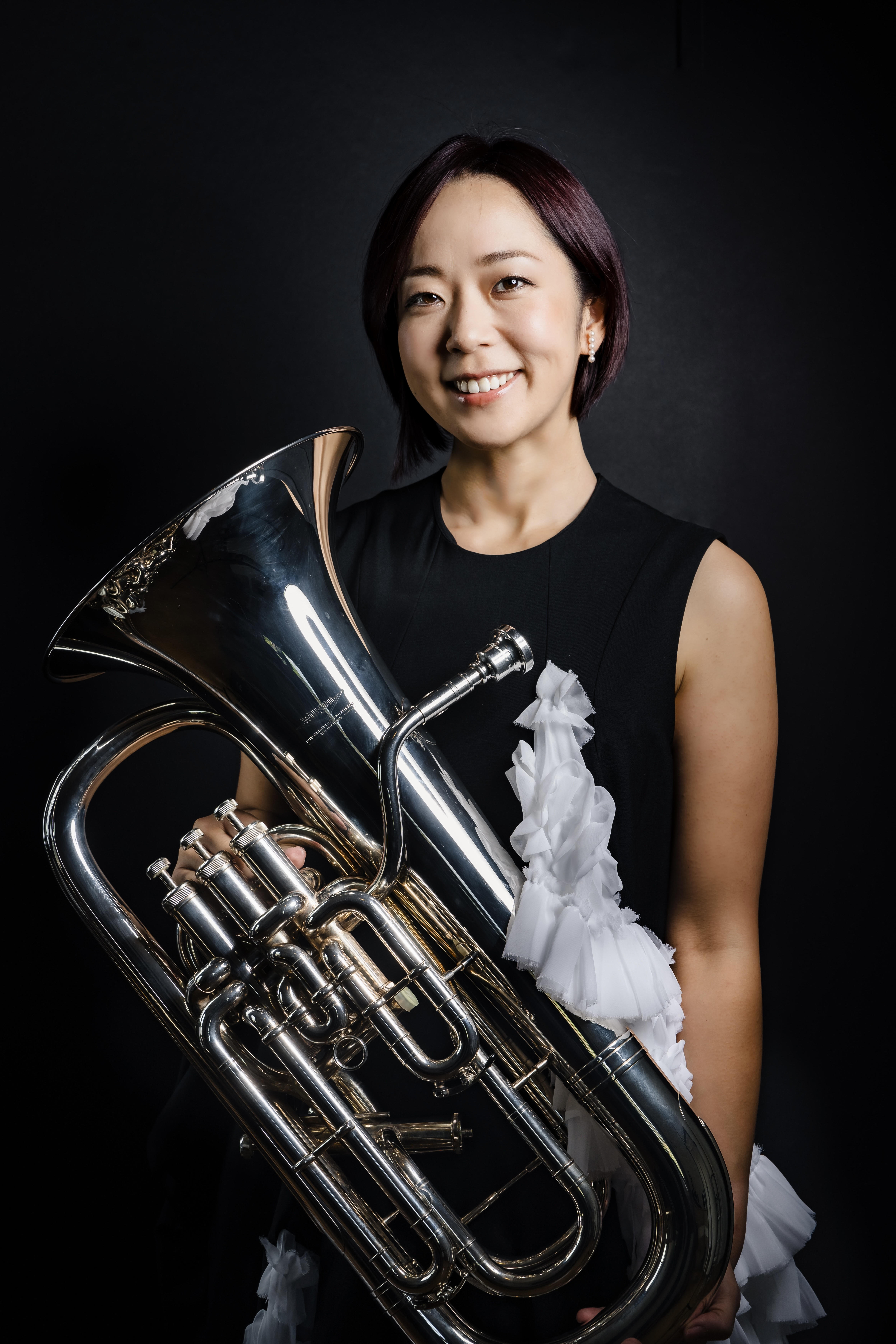
Arisa Makita is a euphonium soloist based in Los Angeles, originally from Tokyo. She is currently pursuing the Artist Diploma program at the USC Thornton School of Music, studying with Doug Tornquist. At USC, she also studied extensively with Jim Self until his retirement. In Japan, she studied at Kunitachi College of Music under Mitsuru Saito and Toru Miura, both of whom played a major role in shaping her musical foundation.
She has received numerous accolades, including First Prize in the Electronic Music Division at the 2019 International Tuba Euphonium Conference, Second Prize in the Euphonium Artist Division at ITEC 2023, and the USC Thornton Concerto Competition award in 2023, which led to a solo performance with the Thornton Winds.
As a soloist, she has performed across the U.S., Europe, and Asia. At ITEC 2025 in Valencia, she gave a featured solo recital, premiering three new works written for her by composers Maria Newman, Yasna Vismale, and Natsuko Shinkawa. She also performed with the Japanese euphonium quartet OrigAmi, of which she is a founding member. The group released its debut album in 2023, followed by their second album in June 2025, and continues to be active internationally.
In 2024, Arisa performed a solo recital at the International Women’s Brass Conference in Mito, Japan, where she premiered Sonata for Euphonium and Piano by David Conte. She continues to collaborate closely with composers and has several recording projects planned, featuring both newly commissioned and reimagined works.
She completed the Graduate Certificate Program at USC Thornton in 2024 and received the Outstanding Graduate Award. She has also collaborated with the online platform Tonebase, contributing to the development of euphonium instructional content.
In addition to performing, Arisa is passionate about sharing her knowledge through teaching and mentorship. She judged the Euphonium Artist Division at ITEC in June 2025, gave a masterclass as part of an online festival hosted in Brazil, judged marching band competitions in Thailand, and worked with student marching bands in Taiwan. Through performance, education, and cross-cultural exchange, she strives to expand the role and reach of the euphonium in today’s musical world.